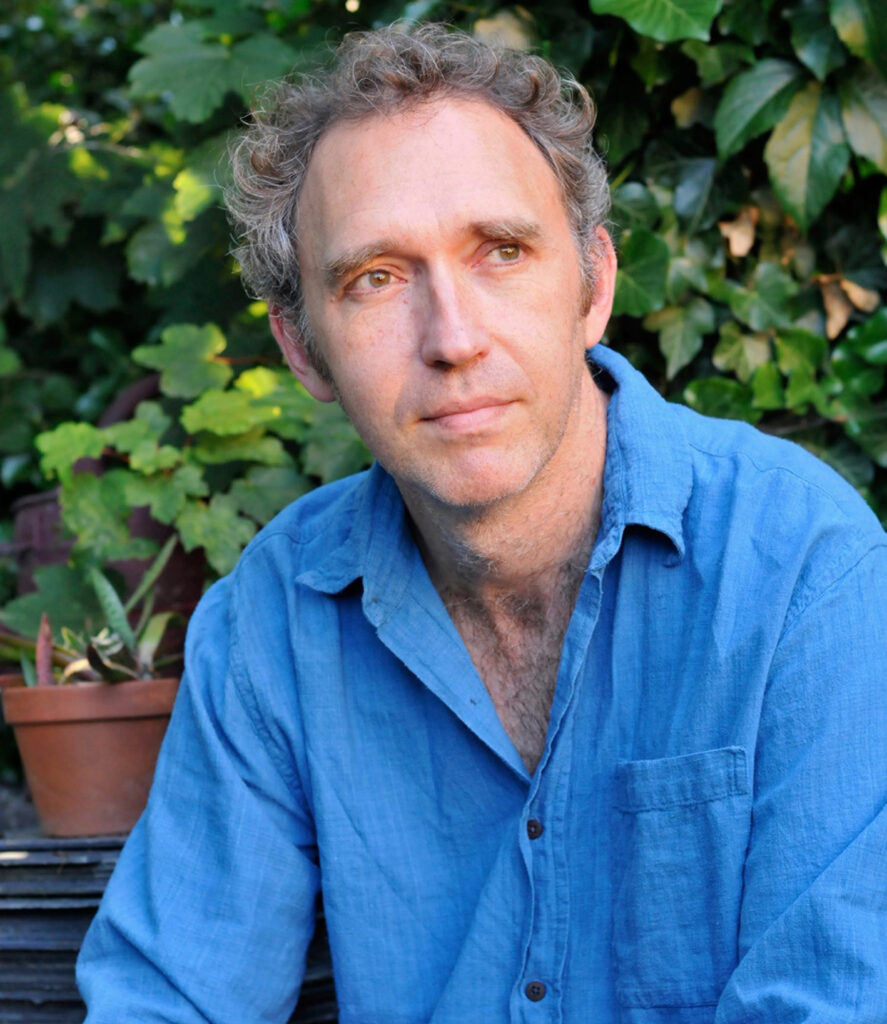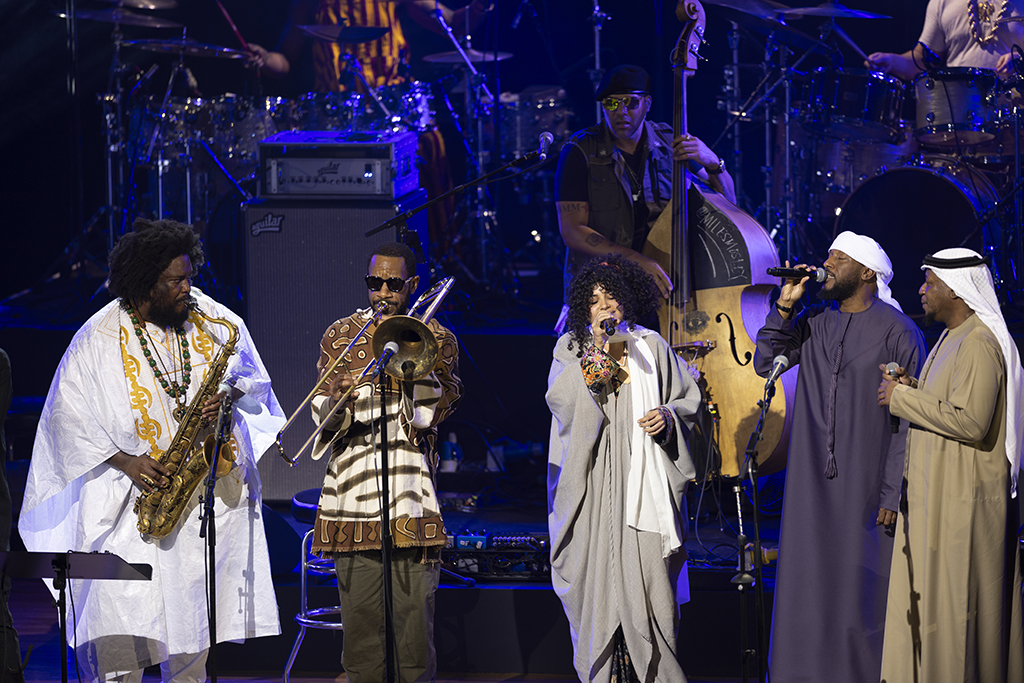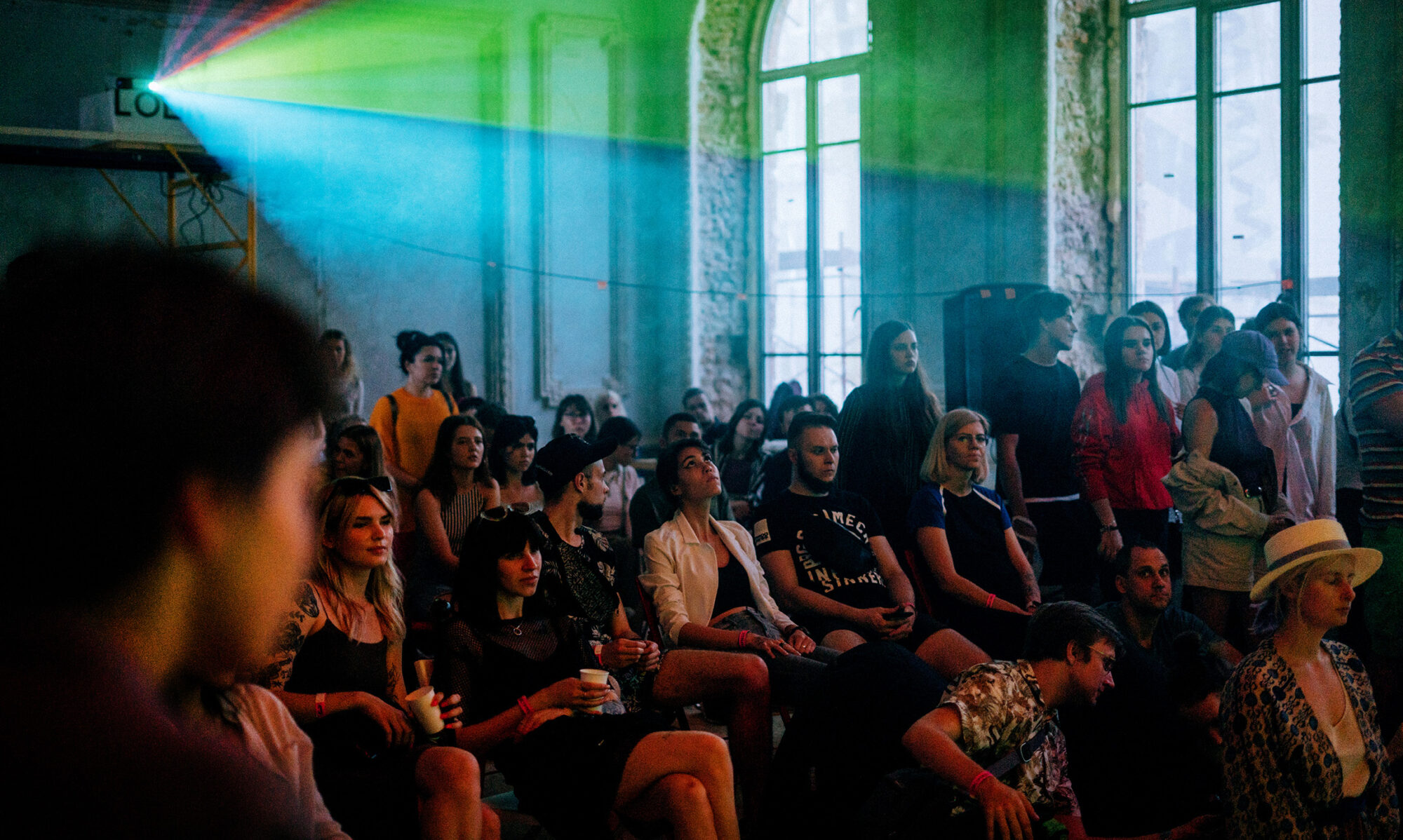Becoming good ancestors: Culture and the art of long-term thinking

Roman Krznaric is a social philosopher who writes about the power of ideas to create change. His internationally bestselling books including The Good Ancestor, Empathy, The Wonderbox and Carpe Diem Regained, have been published in more than 25 languages. Roman gained his PhD in political science and is Senior Research Fellow at Oxford University’s Centre for Eudaimonia and Human Flourishing. He is the founder of the world’s first Empathy Museum, member of the Club of Rome, researcher fellow of the Long Now foundation. His writings on themes ranging from long-term thinking to the power of empathy have been widely influential amongst political and ecological campaigners, education reformers, social entrepreneurs and designers. His latest book, published in July 2024, is History for Tomorrow: Inspiration from the Past for the Future of Humanity.
What do banks for seeds, libraries of unread books, a piece of music programmed to last a thousand years, a washing machine, and medieval cathedrals have in common?
Spanning multiple disciplines – from sociology, alternative economic models, glimpses into the arts and participatory practices – Roman’s keynote was an invitation to wear sharper and more farsighted lenses to read the current socio-environmental crisis. It was a dense summary and compound of thoughts, analysis, and concepts advocating the long-lost, long-term thinking we need to be good ancestors of the generations to come.
To give an insight of how urgent the need is to start thinking long-term with renewed force, he reminded the audience that concerns about crises, as in ecology, started to emerge in the 1970s. The Brundtland Report in 1987 urged governments, organisations and citizens to design ‘development that meets the needs of the present without compromising the ability of future generations to meet their own needs’, a phrase that includes all four pillars of sustainability – social, economic, environmental and governance. Almost 40 years later, the current times highlight how our societies still fail to address this intergenerational responsibility. The ethical principle of intergenerational justice is now often paired with climate and social justice. This generation should not impose undue burdens on future generations or diminish their opportunities.
Roman drew inspiration from immunologist Jonas Salk’s quote, ‘our greatest responsibility is to be good ancestors’.
Living in the age of chronic short-termism
Our general culture does not encourage long-term thinking: the focus is firm on short-term, profit-oriented results and interests; a ‘tyranny of the now’ in which nothing lasts long, not even a washing machine. Our GDP-obsessed and growth-oriented economies are the cradle and grave of the Great Acceleration era. Starting from World War II our economies accelerated use and production, based on the assumption that the world’s resources are infinite. Yet, we are on a finite planet. As anthropologist Thomas Eriksen has written, this accelerated change and its dissonances create friction, overheating our ‘too full and too fast, uneven and unequal world’.
This applies to every aspect of our society, from politics to business models, making us insufficiently adaptable for the multiple challenges on the horizon, perpetuating and enhancing social inequalities. This is called slow violence – a term coined by Rob Nixon – and it refers to the gradual, at times invisible, and delayed forms of violence that accumulate. In Roman’s words, humankind has colonised the future, treating it ‘like a distant colonial outpost where we can freely dump ecological degradation […] as if there was nobody there’. We push our current problems out of sight, out of mind, while those voices from the colonised future – the next generations directly affected by all this – have no rights or representation in our political, economic and cultural life.
The economy we experience today is just one of many possibilities, at least in theory. Researchers have explored alternative economies prioritising balance over GDP. One notable example is Kate Raworth’s Doughnut Economics, which features two concentric rings: a social foundation ensuring basic needs for everyone, and an ecological ceiling that safeguards the planet’s limits. Continuing to envision new economic models is key, as the socio-economic context is stronger than any single engine of change. Social, grassroots movements are examples that signal deeper systemic disruption. As Roman states, around the world local governments, along with organisations and businesses – including artistic ones – are embracing alternative economic approaches, which is an encouraging sign. However, they are not closed systems, as they still operate deeply embedded in the main model. They show it is possible, but they cannot lead change alone.
Extending our time horizons – the cultural sector’s role
Long-term projects may not be finished even within one’s career or even lifetime. This is what happened in medieval Europe, when people built the cathedrals we still admire. In this sense, Roman encourages us to rediscover a new cathedral thinking. Once more, art presents tangible examples of beyond-our-time projects. A good example is Longplayer, a musical composition that started on 1 January 2000, and will finish on 31 December 2999. Another is the Future Library, where renowned authors contribute a book every year, keeping it unread in a secret Oslo library until 2114. The Svalbard Global Seed Vault, collecting millions of seeds from every corner of the world in a bunker in the Arctic Circle is a idea in the same vein. While sharing these examples, Roman said that the cultural and artistic sector and its organisations have a responsibility to help create a society of good ancestry, as they are vital in expanding our time horizons.
In support of this point of view, anthropologist Amitav Gosh says, “the climate crisis is also a crisis of culture, and thus of the imagination”: our collective failure to handle climate change adequately is rooted in a deeper incapacity to imagine the scale and consequences of the crisis, as well as visualising alternative futures – alternative modes of living, consuming and interacting.
Empathy in long-term thinking is vital and imagination is a key tool to build that empathy. The cultural world has a relatively unusual power of imagination to project into the future, to put people in other’s shoes, to paint a picture for the rest of society. Arts train the power of imagination and identification in other contexts: time, geography, culture. Roman urged practicing deep listening and vulnerability. Both help to connect to our surroundings, our environment, by learning to listen to other forms of knowledge that we often ignore. The human experience and culture, constituting the ethnosphere, is just a subset of a huge amount of experiences, including the non-human ones. By gaining broader, deeper knowledge about the place we inhabit, we can develop appreciation for it, rebuilding a sense of belonging. The arts have a key role in developing empathetic skills – a key strength necessary to thinking in long and wide terms, building adaptation and prevention.
“In a time of authoritarian hostility and profound skepticism about the value of what the cultural world does, keep as heroic as you can possibly be in championing all the values and all the ideas and all the dreams that you do. […] we truly believe that we are making things better and making people happy.”
Citing Brian Eno’s latest book, What Art Does (2025), Roman highlighted how the arts, as opposed tos data and facts, evoke emotion. As trivial as it may seem, it is necessary to remind oneself that at times one can feed people with all the facts in the world, and it does not change them. Emotions and gut feelings will. People at cultural events talk with each other beforehand and afterwards about what they have learned and listened to, talk to strangers empowering the practice of dialogue and exchange. If someone working in the cultural field has the power to suggest possibilities, but very rarely to lead, do not underestimate culture’s impact on social and political change. History has plenty of examples, and Roman mentioned the late 1780s anti-slavery movement operating via a viral poster called Brooke’s Slave Ship, or the photos of Louis Hine, secretly exposing child working in factories and in coal mines, leading to state and federal legislation against child labour. Roman mentioned the effort of the Bereaved Families Forum, an organisation in Israel-Palestine that connects families who have lost loved ones in the never-ending conflict to facilitate dialogue and share stories between Israelis and Palestinians. With the initiative Hello Peace telephone line, over 1 million calls were made in its first five years, allowing Israelis and Palestinians to talk freely with each other. Though this specific project has ended, the organisation continues trying to run similar initiatives today, attempting dialogue where that phone seems now to hang in a void.
As Roman remarked that the window is closing and that the decisions we make will have unbelievable impacts on generations to come. We have crossed the fateful threshold of a 1.5°C increase in global average temperature compared to pre-industrial levels, and the current geopolitical situation does not portray an intergenerationally just scenario.
Given the burden we are carrying and perpetuating from our ancestors, who did not have the means to measure the dangerous consequences we have inherited, now that we know, if being good ancestors is too ambitious, can we at least become better ancestors:
more aware, and most importantly, more coherent with our words, fears and actions to address them.
This text is based on the keynote of social philosopher and writer Roman Krznaric, introduced by and in conversation with Peter Florence at the European Festivals Association’s Arts Festivals Summit on 29 April 2025 in Edinburgh, hosted by the Edinburgh International Festival, Festivals Edinburgh, and the City of Edinburgh Council.
Resources and food for thoughts
Books
- Krznaric, Roman, 2020. The Good Ancestor: How to Think Long Term in a Short-Term World. London: Ebury
- Eriksen, Thomas Hylland. 2016. Overheating: An Anthropology of Accelerated Change. London: Pluto Press.
- Ghosh, Amitav. 2017. The Great Derangement. Berlin Family Lectures. Chicago, IL: University of Chicago Press.
- Haraway, Donna J. 2016. Staying with the Trouble. Experimental Futures. Durham, NC: Duke University Press.
- Nixon, Rob. 2013. Slow Violence and the Environmentalism of the Poor. Cambridge, Mass: Harvard University Press.
- The Global Atlas for Environmental Justice.: in this platform here you can find examples of grassroot movements, as the GreenBelt movement in Kenya, mentioned by Roman in his keynote.
On alternative economies & Co
- Raworth, Kate. 2017. Doughnut Economics: Seven Ways to Think Like a 21st Century Economist. Chelsea Green Publishing.
- Hickel, J. (2020). Less is more. How degrowth will save the world. William Heinemann.
- Federico Demaria, G. K. G. D. (2014). Degrowth: A vocabulary for a new era. Routledge.
- The Seventh Generation principle, which emphasises considering the welfare of seven generations into the future in todays decision making
- Future Design, fostering local decision-making by engaging residents envisioning their roles as present-day or future residents. Unsurprisingly, the latter advocate for the major transformative plans.
Other Projects mentioned in the keynote
- The human library, Denmark. Instead of borrowing a book from a library, you borrow a person for conversation.
- Oxford Muse, where strangers with different backgrounds meet in front a conversation menu, instead of a food and beverages one – the opposite of speed dating.
- Empathy Museum, it’s the world’s first empathy shoe shops: you’re fitted with a pair of shoes belonging to a stranger. It could be a Syrian refugee or a Buddhist monk or an environmental activist or florist, whoever. And then you can literally walk a mile in their shoes while listening to an audio narrative of them talking about their life. Everywhere the museum goes (Belgium, Montreal, Brazil), it collects new shoes and stories.
- Future Library project
- Global Seed Vault
- Environment and society portal
Festival Life creates shared moments of audiences and artists, eye-to-eye


